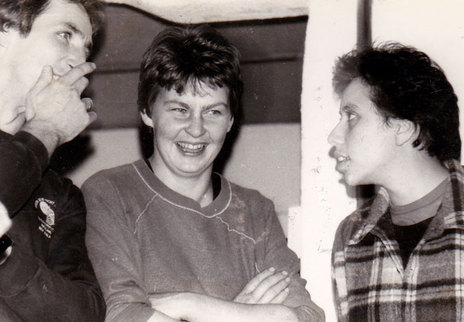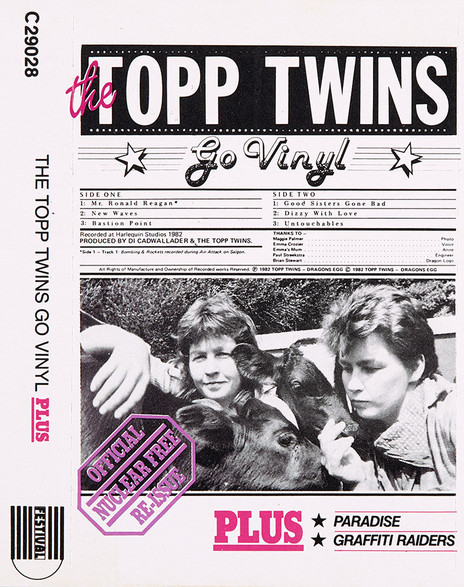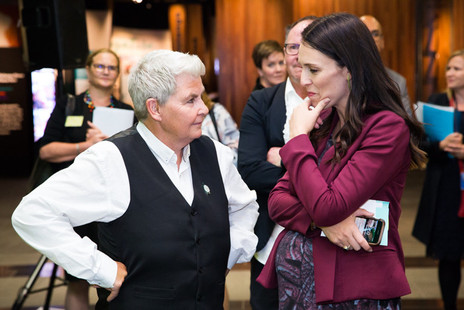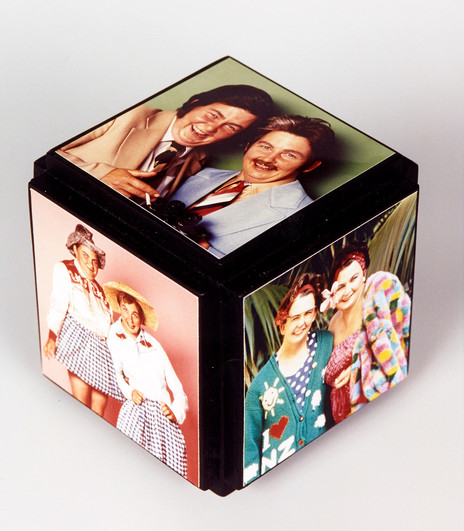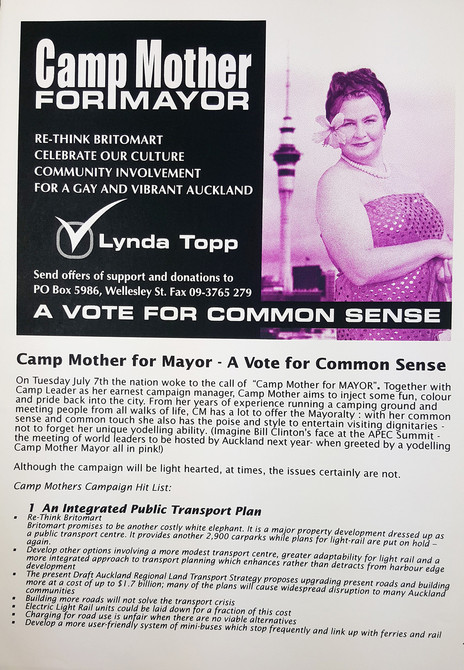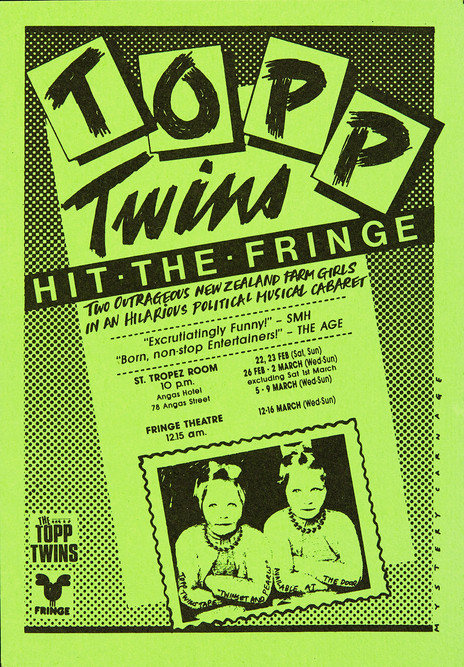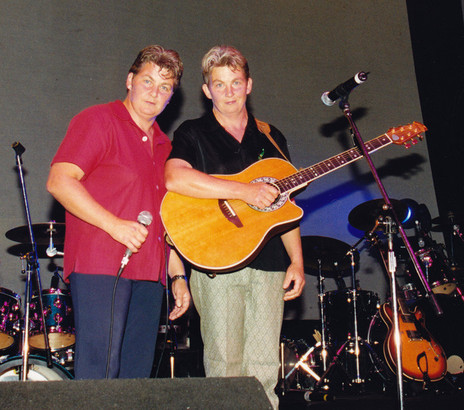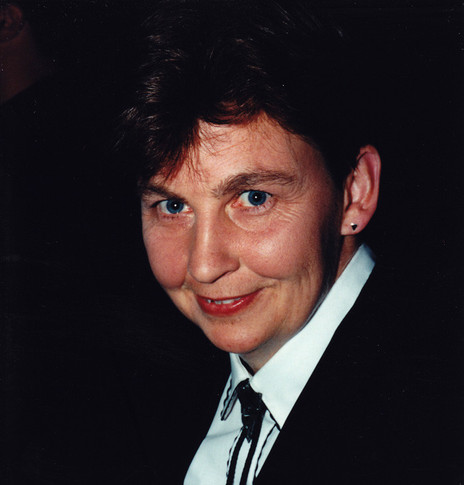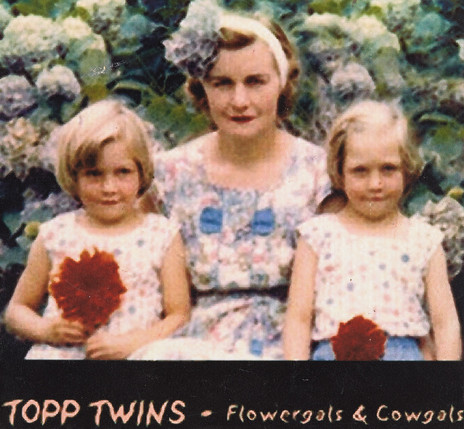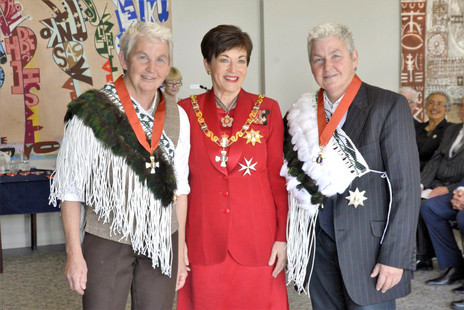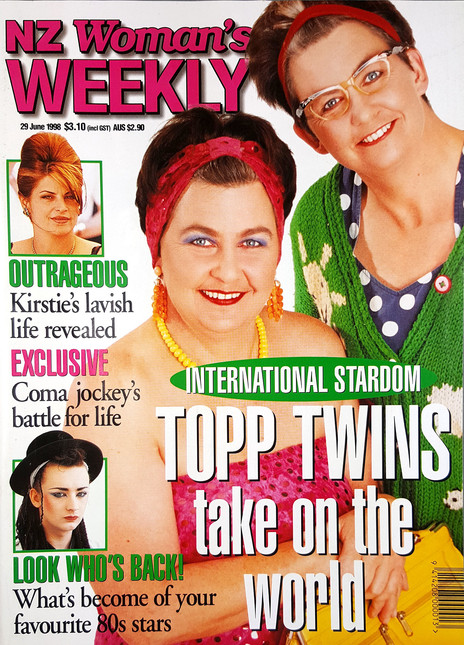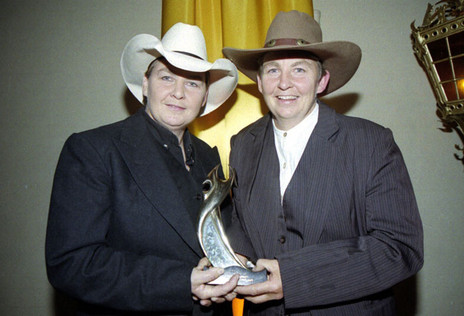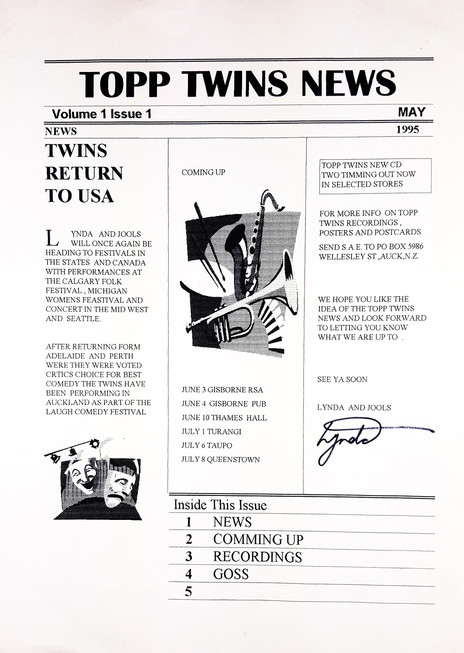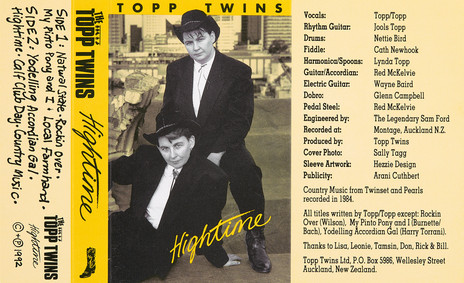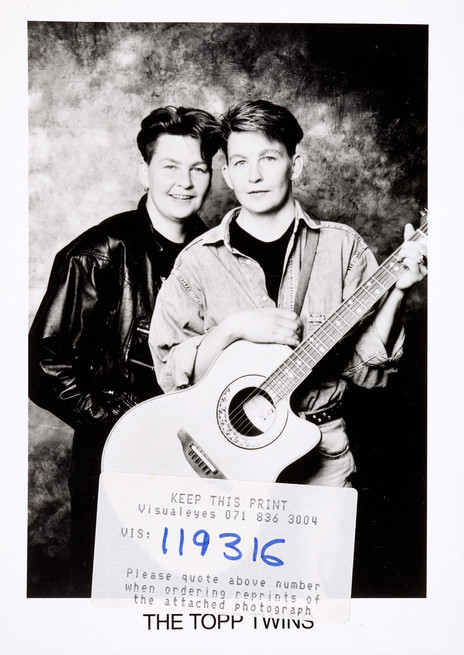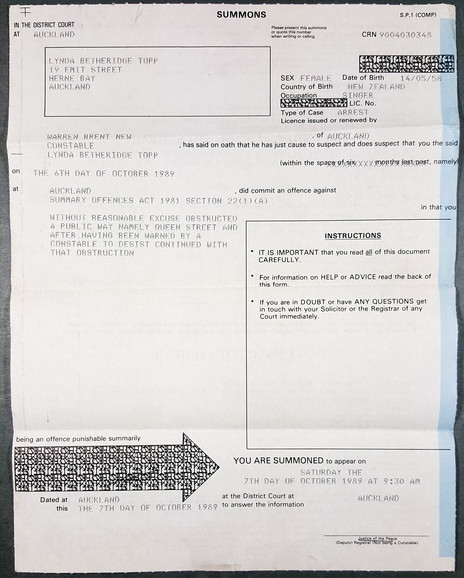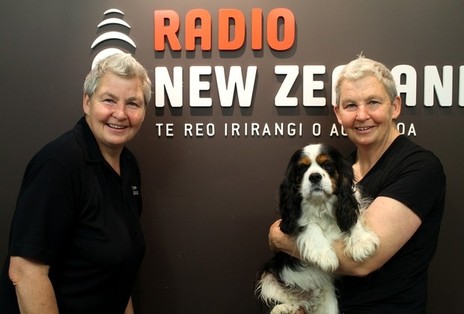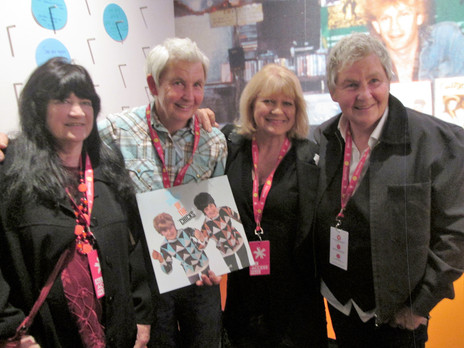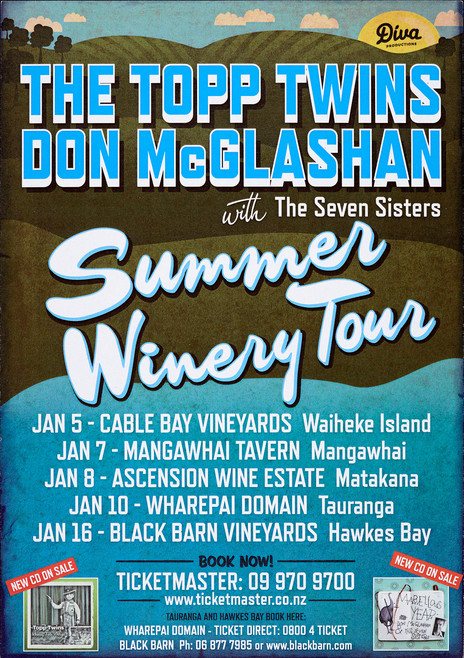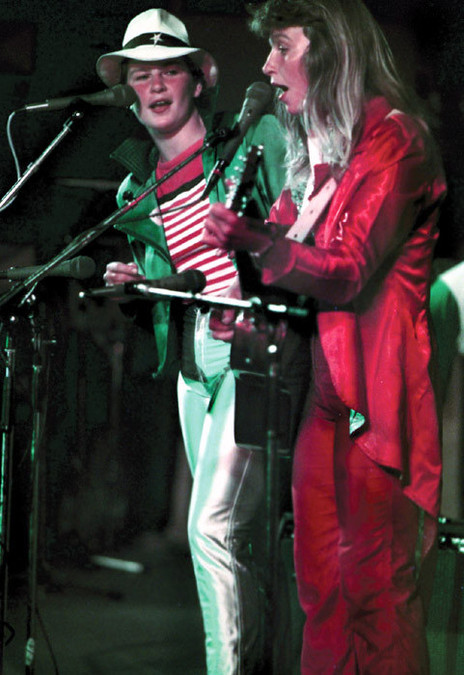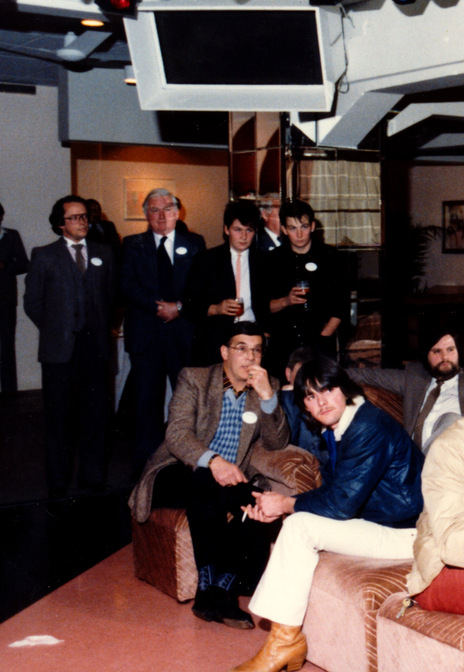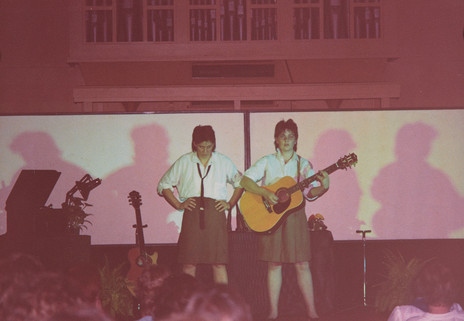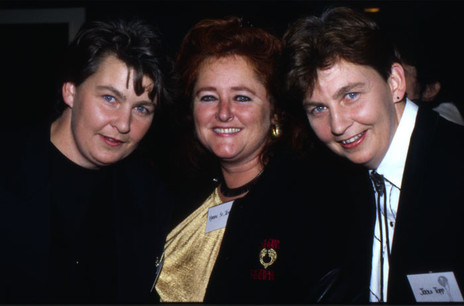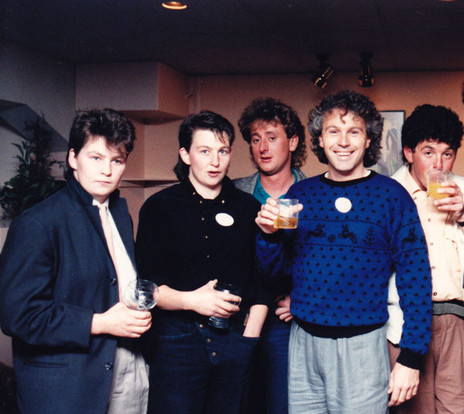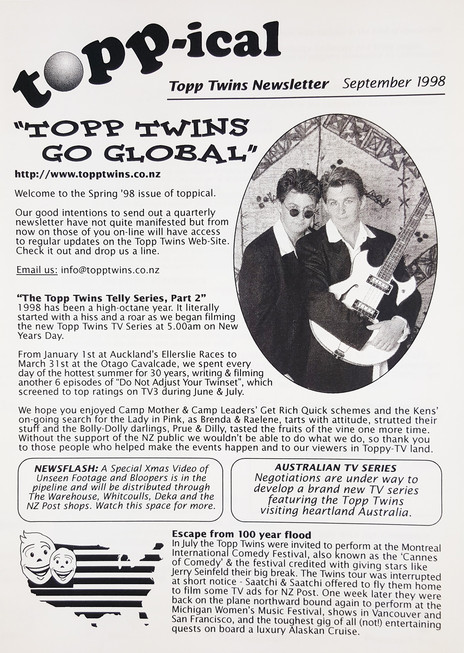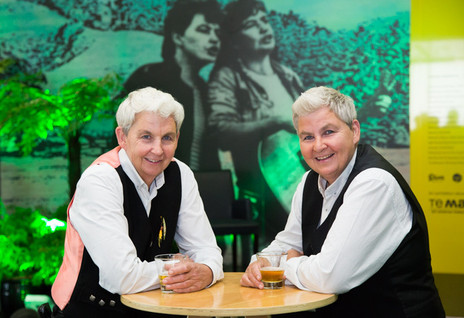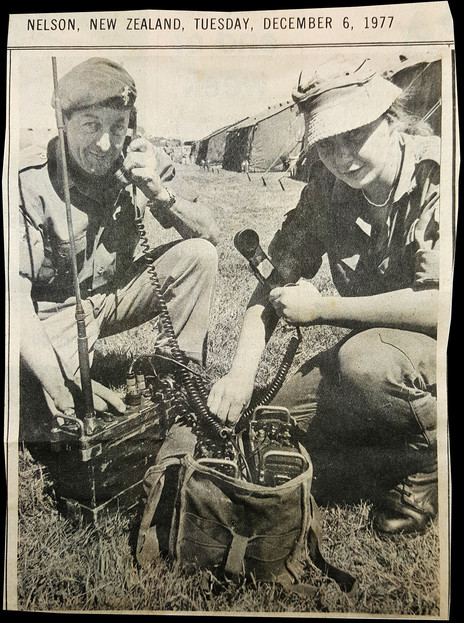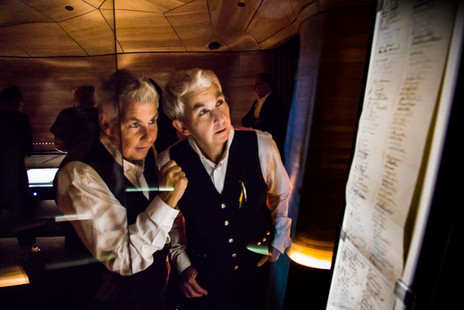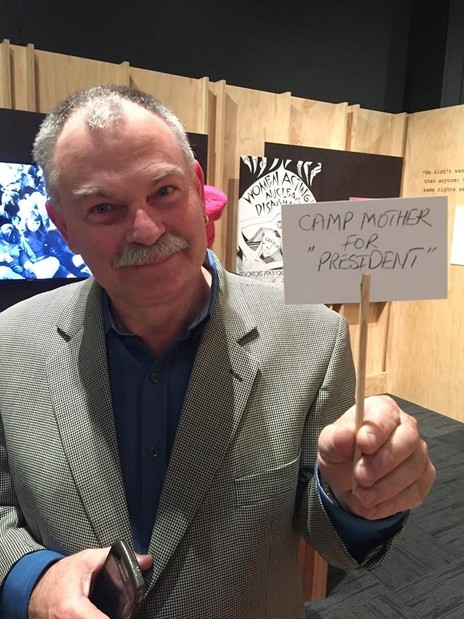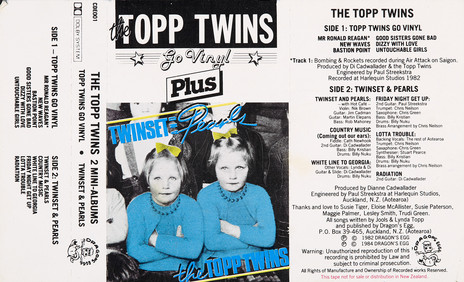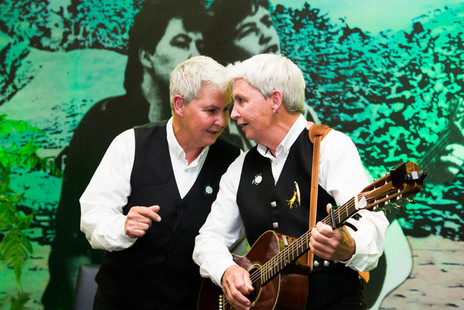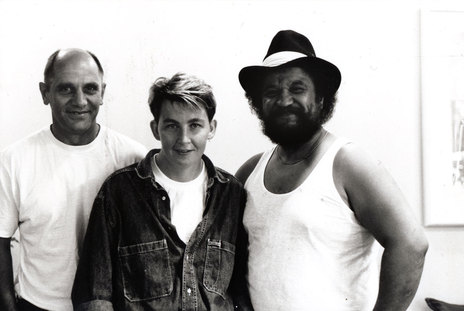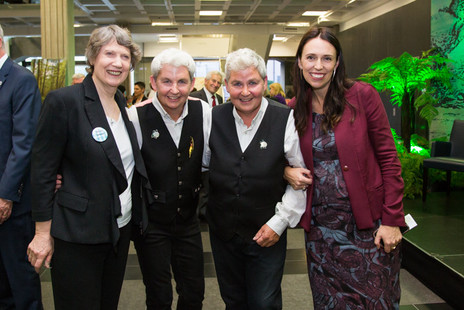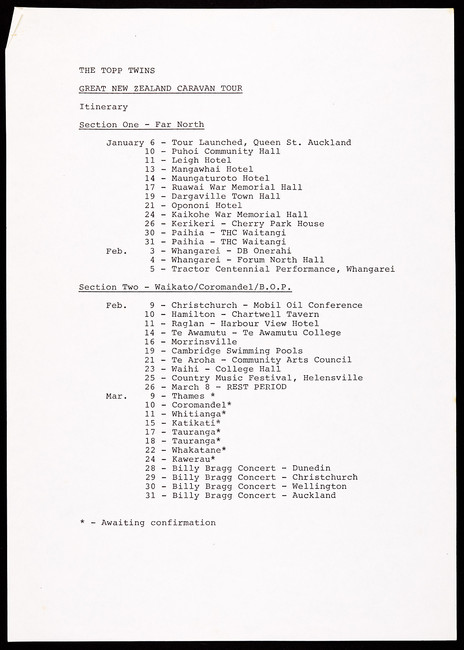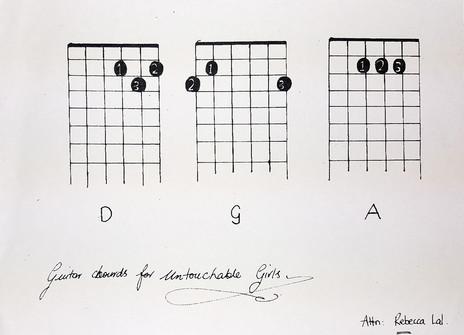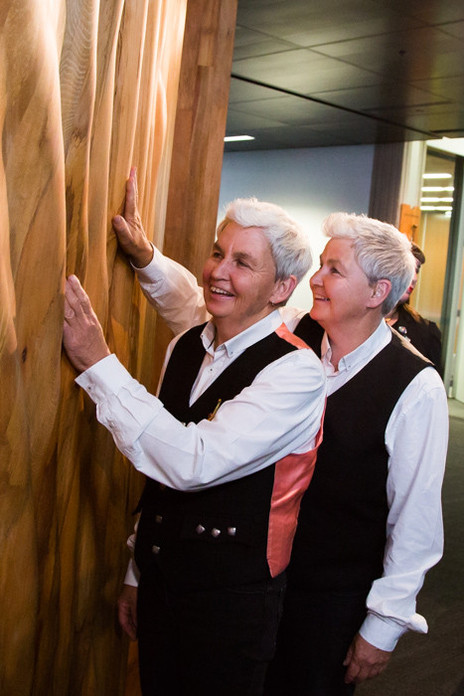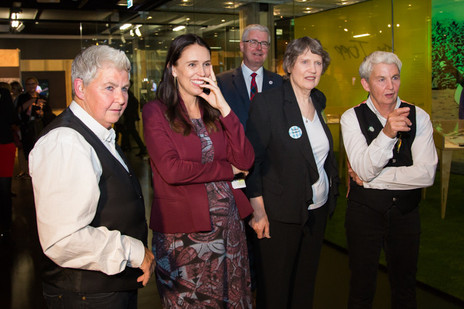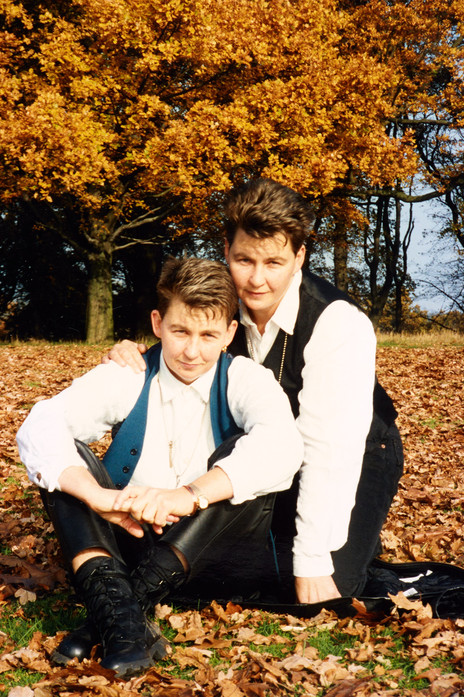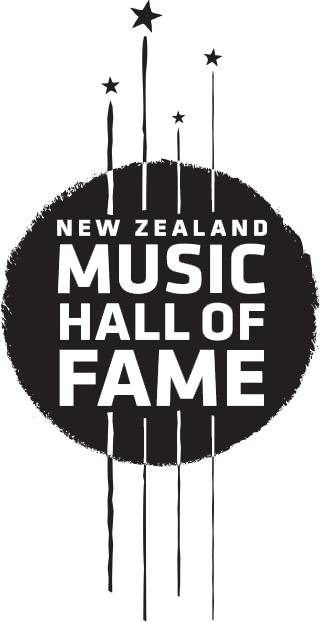Over a 40-year career as singers and comedians, The Topp Twins have successfully celebrated – and affectionately skewered – New Zealand society, especially mid 20th century yokel culture, through instantly resonant archetypes such as Ken and Ken and Camp Mother and Camp Leader. Yet they are unabashedly sentimental about their roots in old time country, as an original song like ‘Calf Club Day’ shows.
They grew up on a dairy farm at Ruawaro near Huntly, in the rolling, conservative heartland of the Waikato, famously singing to the cows. And it was at Rugby Park in nearby Hamilton that these “land girls” were reborn as noisy activists, even firebrands. A 2009 documentary recalled their presence in a sit down protest during the divisive 1981 Springbok rugby tour. Rugby fans, outraged that the game had stopped, howled and flung missiles at protestors, including full cans of beer.
In a 1982 Rolling Stone interview the Topps recalled: “We found ourselves out there in the middle of the field with 300 others. As far as being close to people goes that was the closest we ever got. From there it was all on – we took part in every march and sang to keep morale up.”
Jools and Lynda Topp were born in 1958 to a close-knit farming family. They grew up by the radiogram in the lounge, listening to 78s by mid 20th century country and western stars like Shirley Thoms (“Australia’s Yodelling Sweetheart”), Slim Dusty and consummate New Zealand yodeller Tex Morton. Their love and respect for this homespun, often caricatured musical heritage, is genuine: “We were into the real old country and western tunes. This was ‘Sleeping Under The Bluegums On The Lonesome Trail’ kind of stuff.”
They began singing together as toddlers, perfecting vocal harmonies to an almost telepathic degree.
They began singing together as toddlers, perfecting vocal harmonies to an almost telepathic degree, Lynda making a successful foray into yodelling. “We always sung, from when we were very little. We used to run home from school, throw our school bags away, grab the guitar and play for about four hours until tea. We practised in front of the mirror with hairbrushes.”
As Lynda told Sandra Coney in a 1980 interview for Broadsheet, “We haven’t learned from other people, we’ve learned from each other.”
Their first public appearance came at the age of five when they performed the Roger Miller song ‘Walking In The Sunshine’, complete with boaters and canes, at a Papakura cousin’s 21st birthday.
After leaving school, Jools worked briefly in a local chemist shop, but the Topps were ready to leave their Waikato home. In 1976, they accepted a free trip to Christchurch to join the Territorials at Burnham Military Camp. They survived six weeks in the army, Jools later getting a job in a biscuit factory and Lynda working as a car cleaner.
They played their first gig at Christchurch’s Victorian Coffee Lounge, famously earning $5 each and “as many toasted sandwiches as we could eat”. They became habitués of the Gresham Hotel, major fans of the now almost forgotten rock group Baby and its charismatic lead singer Nancy Kiel.
“She was our idol, the biggest idol we’d ever had in our lives,” recalled Jools. “We’d never been to see a band in a pub and there was this amazing woman onstage just pouring it out. We later invited her and this other woman, Diane Cadwallader, to a party at our place and after we sang them ‘Goodnight Irene’ with four extra bars, they asked us to play at a women’s show.”
In Cadwallader, they encountered one of the canniest, most successful musical promoters of the day. In the late 1960s, this former Levin journalist transformed a 21-year-old schoolteacher named Bogdan Kominowski into pop idol Mr. Lee Grant. Cadwallader served as their friend and informal manager in these formative years.
Their appearance at the 1977 International Women’s Convention in Hamilton proved a turning point, original songs like ‘Paradise’ and ‘We’ll Fight for Our Freedom’ strongly resonating with their audience. It was also at this time that they came out as lesbians at a time when the word was barely heard in this country. They remained in the North Island as the 1980s began, gaining a devoted following in Auckland as buskers on Queen Street, when Friday night shopping was still part of the social landscape.
Based in Ponsonby, they also starred in a series of women-performers only concerts that became a regular fixture at the Island of Real café in Airedale Street, in the central city.
Like many other young New Zealanders, the Topps found the early 1980s a heady era of political protest, as Robert Muldoon, our most polarising prime minister ever, cynically welcomed a racially selected rugby team from South Africa to shore up conservative support in the regions. The Topps stood at the barricades with guitars in their hands, opposing the 1981 Springbok tour as part of the anti-apartheid struggle. They also publicly showed support for nuclear-free New Zealand, Māori land rights and homosexual law reform. In 1985 they performed on New Zealand university campuses on a nuclear-free tour with Australian musician/politician Peter Garrett: they sang, he spoke. (“We don’t talk, we sing speeches,” they told Michèle A’Court, who covered the tour for Salient.)
Jools and Lynda were meanwhile building a devoted, word of mouth audience as a result of intensive touring, first throughout New Zealand and later overseas, especially Australia and the United Kingdom. Over this time, they fine-tuned their stage show, blending singing, dancing and yodelling with a wild, ragged streak of satire, some of it political. Billy Bragg, with whom they performed, later called them “an anarchist variety act”.
By the late 1980s television seemed an obvious next step, with highlights from stage shows initially turned into a TV special.
By the late 1980s television seemed an obvious next step, with highlights from stage shows initially turned into a TV special. Their highly visual style as entertainers proved a natural fit with the medium, and the result was several film and TV awards including 1987 Entertainers of the Year, Best Entertainment Programme and Best Original Music. Then came Do Not Adjust Your Twinset, which became a runaway success on TV3 over three series, earning them more awards. The accolades kept coming: the Queens Medal for Services to Entertainment in 2004, and induction into the NZ Music Hall of Fame four years later.
By the end of the first decade of the 21st century the Topp Twins were a household name. In 2009 came a feature-length documentary, Untouchable Girls, a film that harked back to their origins and told many fresh and personal stories. The film, an immediate commercial and critical hit, also had a poignant side in its portrayal of Jools Topp’s successful battle with breast cancer. The twins continue to perform. At the start of 2016, they played at Kiwis on Board, a fundraising welcome concert for refugees at Auckland’s Silo Park. They have published six children’s books, and toured shows especially aimed at children.
In 2017 The Topp Twins - an exhibition for New Zealand was developed by Te Manawa museum in Palmerston North. Its next stop was at the National Library, Wellington, opening on 26 March 2018, with current and former prime ministers Jacinda Ardern and Helen Clark in attendance.
In 2018, Jools and Lynda Topp were named Dame Companions of the New Zealand Order of Merit (DNZM) for services to entertainment in the Queen’s Birthday Honours.
--
Read Good Sisters Gone Bad, a 2018 AudioCulture interview with the Topp Twins
Read Homemade Jam - Sandra Coney on the Topps, 1980
Read The Topp Twins on the road, 1985, by Michèle A’Court
Read The Topp Twins: close encounters of the weird kind
--
All the images supplied by the Alexander Turnbull Library are from the Diva Productions Ltd Collection
